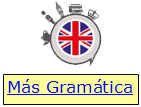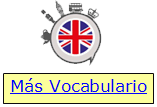 Gramática: Reported speech reported-speech Gramática: Reported speech reported-speechPresent simple – past simple “I’m hungry” Craig said that he was hungry Present continuous – Past continuous “Reza’s sitting opposite me” – Craig said that Reza was sitting opposite to him. Present perfect simple – Past perfect simple – “I’ve made the tea.” – Craig said that he had made the tea. Present perfect continuous – Past perfect continuous “I’ve been teaching English for 20 years.” – Craig said that he had been teaching English for 20 years. Past simple – past perfect – “I had a really bad day yesterday.” – Craig said that he had had (he’d had) a bad day. Past perfect – Past perfect “I had already had breakfast when you arrived this morning.” – NO CHANGE – Craig said that he had already had breakfast when I arrived this morning. Past perfect continuous – Past perfect continuous – “I’d already been teaching for five years when I came to Valencia.” NO CHANGE – Craig said that he’d already been teaching for five years when I came to Valencia. Modal verbs: will – would – “I’ll make the tea.” – Craig said that he would make the tea. can – could – “I can swim” – Reza said that he could swim. must – had to – “I must get some more milk.” – Craig said that he had to get some more milk. may – might – I may go out this evening.” – He said that he might go out this evening. could, would, should, might and ought to – NO CHANGE – “I could swim when I was younger.” – Craig said he could swim when he was younger. – “I would go to Australia if I had the money.” – Craig said he would go to Australia if he had the money. Expressions of time if reported on a different day this (evening) – that (evening) “This evening I’m going to a disco.” – Craig said that that evening he was going to a disco. today – that day – “today I’m playing football.” – Craig said that that day he was playing football. these (days) – those (days) – We spend a lot of money on food these days.” – Craig said that we spent a lot of money on food those days. now – then – “I’m learning Spanish now.” – Craig said that he was learning Spanish then. (a week) ago – (a week) before/earlier “We went to a pub quiz a week ago.” – Craig said that they had Been to a pub quiz a week before/earlier. last weekend – the weekend before last / the previous weekend – “Last weekend we had a party.” – Craig said that the previous weekend they had had a party. here – there – “What are you doing here?” – Craig asked what I was doing there. next (week) – the following (week) – “We will release another podcast next week.” – Craig said that we would release another podcast the following week. tomorrow – the next day/following day – “The sun will come out tomorrow.” – Craig said that the sun would come out the next day/the following day.  Vocabulary Corner: British/American English Vocabulary Corner: British/American Englishtrousers (UK) (pantalones) – pants (US)download waistcoat (UK) (chaleco) – vest (US) vest (UK) (camiseta) – undershirt (US) tights (UK) (medias) – pantyhose (US) nappy (UK) (pañal) – diaper (US) knickers (UK) (bragas) – panties (US) pants (UK) (calzoncillos) – underpants (US) Phrasal verbs: Test Reza’s Spanish  What are the phrasal verbs for these Spanish verbs AND give an example sentence: parecerse a alguien – take after – Reza’s takes after his mum. alejarse – go away – Girls tell Reza to go away on Valentine’s Day. levantarse – get up – What time do you get up in the morning? sentarse – sit down – Please sit down, have a seat. salir – go out – Are you going out this week? regresar – go/come back – YOu’d better come back early. llenar – fill in – fill in a form cuidarse – look after – Look after my plants while I’m on holiday despegar – take off – What time does the plane take off? despertarse – wake up
|
 *Dispones
de más
*Dispones
de más


